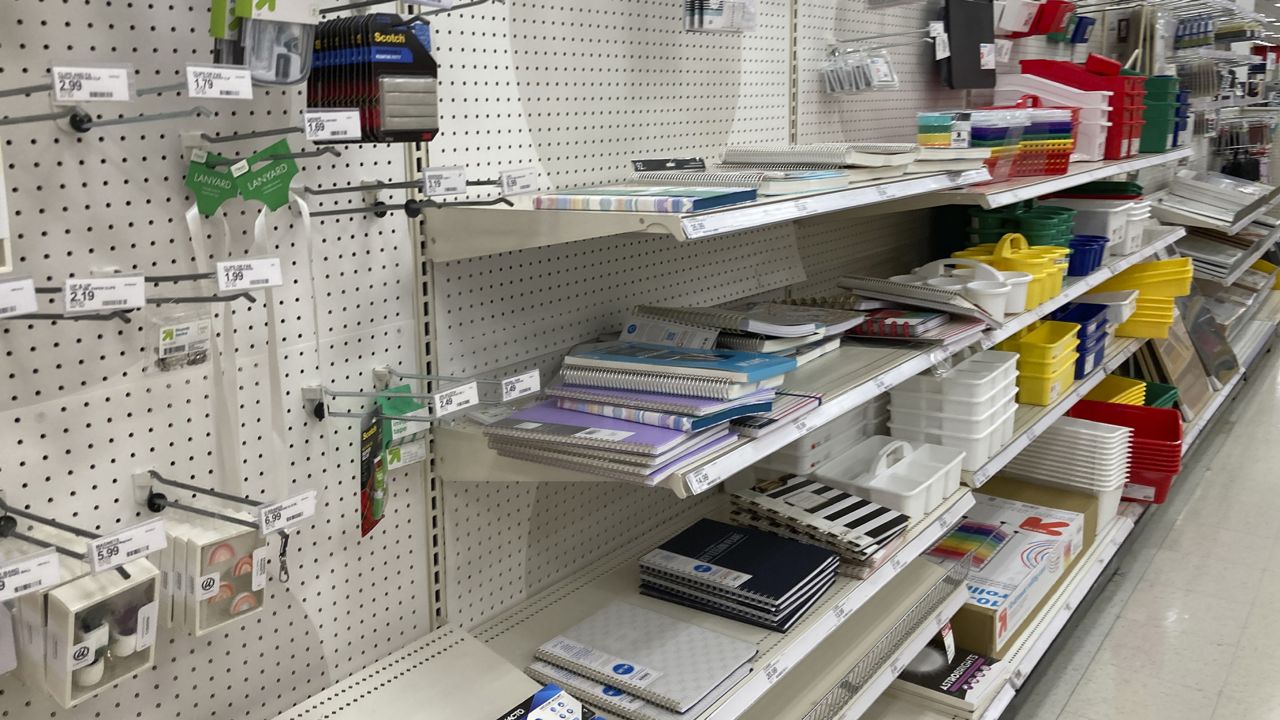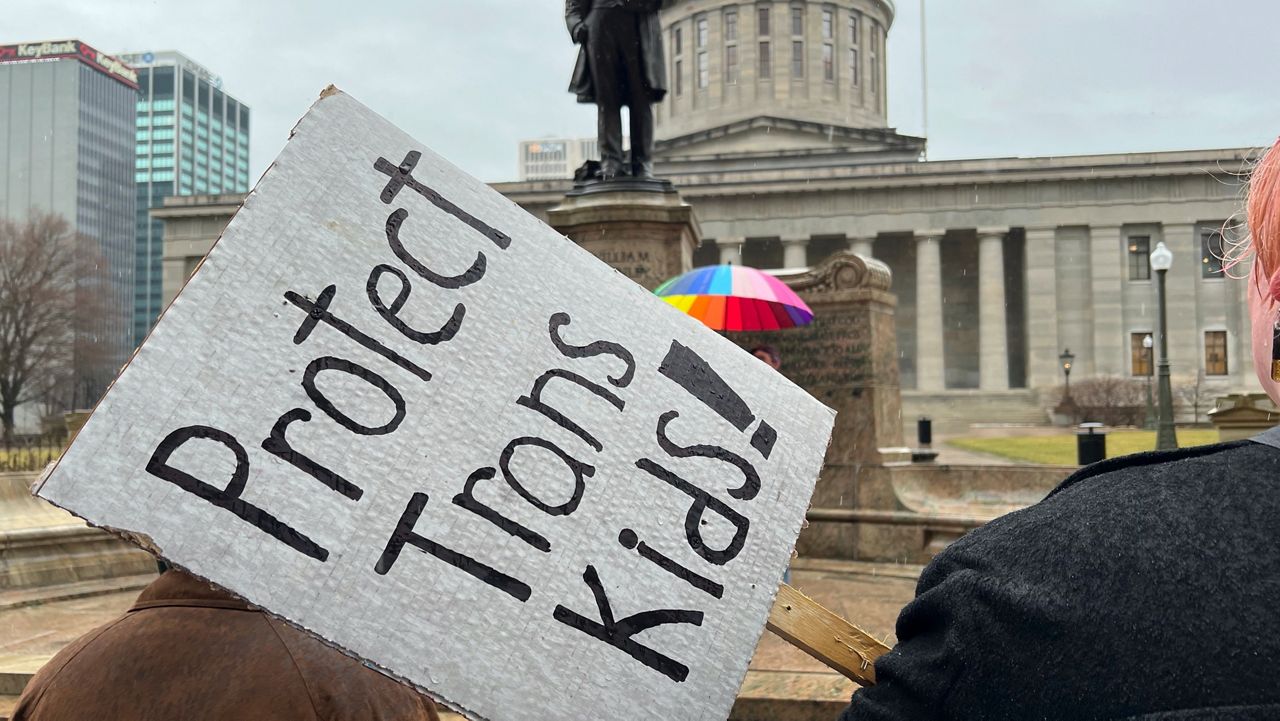Inflation and rising consumer prices are being felt across the U.S. economy – and Americans can expect back-to-school supplies to cost even more this year than in the past.
According to data from the National Retail Federation, back-to-school costs are expected to exceed $860 per household this year, up from $840 in 2021 and $789 in 2020. Families will likely choose to spend more on clothing, accessories and shoes this year compared to last year, with a slight decrease in spending on electronics from 2021.
But many shoppers have noticed a higher price tag on those items they are seeking more, with 80% of respondents saying they noticed higher costs on clothing and 68% saying they are seeing higher prices on all back-to-school items.
Because of this, some consumers are being forced to accomodate for the price increases in varying ways – 38% say they are cutting back on spending in other areas, 18% are working overtime or taking additional jobs and 12% are either borrowing money or going into debt to pay for school supplies.
“Families consider back-to-school and college items as an essential category, and they are taking whatever steps they can, including cutting back on discretionary spending, shopping sales and buying store- or off-brand items, in order to purchase what they need for the upcoming school year,” NRF president and CEO Matthew Shay wrote in a statement. “The back-to-school season is among the most significant shopping events for consumers and retailers alike, second only to the winter holiday season.”
The NRF expects back-to-school spending, which includes only money spent on K-12 school items, to surpass last year’s $71 billion by nearly $3 billion.
Here are some ways to save money on back-to-school shopping:
A new holiday for some and a time-honored tradition for others, a bevy of states will this year have a tax-free day (or days) where certain supplies – ranging from children’s books to clothing to diapers – will be available with waived or reduced taxes.
For the first time this year, Florida is offering over three months of tax-free days on children’s books, starting from May 14 and lasting through August 14. From July 1 through June 30 of next year, diapers and childrens clothes will go untaxed in the state; as were the cost of outdoor activities between $25 - $100 between July 1 through 7.
In 2007, Florida offered a sales tax holiday for a period of time in the summer on the retail sale of clothing, footwear and certain accessories under $100; certain school supplies under $50 per item; learning aids and jigsaw puzzles under $30 and personal computers or similar devices under $1,500. Though the program was discontinued for several years in the interim, this year’s back-to-school sales tax holiday started Monday, July 25 and will last through August 7.
Other states also recently passed similar tax-free holidays for school supplies. Last year, West Virginia began its sales tax holiday for certain clothing with a purchase price under $125, for certain school supplies under $50, school instruction materials costing $20 or less, some laptops and computers or accessories costing $500 or less and some sports equipment under $150. This year’s tax holiday in West Virginia will start on August 5 and last through August 8.
Click here to see if your state has a back-to-school tax holiday, and what items might be included.
The Assistance League, a national nonprofit that tailors community-led solutions across dozens of states, has a program called “Operation School Bell,” which was launched decades ago with “the purpose of clothing children who might otherwise be unable to attend school because they lacked basic clothing.”
In the years since, the program has expanded to numerous other services, and local chapters frequently host literacy events, book and clothing drives and even helps low-income students obtain prom dresses.
The Assistance League has also been known to give families gift cards to partner stores like Target, and will offer students “Looking Smart Kits,” which include hygiene items and other personal care accessories.
Just in Austin, Texas, Operation School Bell has given clothing to over 100,000 children in need since the program was first launched in 1984. Students in preschool, kindergarten and elementary schools receive a package containing pants, a belt, shirt, underwear, socks, a jacket and a grooming kit.
The Assistance League has 301 locations across 27 states. To see if you are close to a participating chapter, click here.
Created specifically for military families, Operation Homefront has hosted a variety of programs since 2002 – including their popular Back-to-School Brigade, a nationwide school supply collection drive and distribution campaign.
Since it first launched in 2008, the Back-to-School Brigade has provided over 465,000 backpacks to military children filled with supplies provided primarily from Dollar Tree, a longtime partner to the effort. Individuals can also donate supplies to the Dollar Tree, which will be collected by Operation Homefront volunteers between June and August at more than 7,800 participating Dollar Tree stores.
Thanks to the help from Dollar Tree and its other corporate partners, the Back-to-School brigade will this year send out its 500,000th backpack.
“An incredible milestone worth celebrating, particularly as many of the military families we serve have tight budgets and with inflation on the rise, we know they greatly appreciate opportunities to be able to save their scarce resources to pay for other critical needs,” Operation Homefront president and CEO Ret. Brig. Gen. John I. Pray Jr. said in a statement.
The backpacks are available for military dependent children enrolled in DEERS entering K-12 this year, and supplies will be given out on a first-come, first-serve basis. Check to see if there will be a Back-to-School Brigade drive near you, click here.
The Kids In Need Foundation is another nationwide nonprofit that partners with teachers and students in under-resourced schools in order to help them thrive. One of their programs – called “Supply A Student” – offers pre-assembled backpacks filled with folders, notebooks, pencils, markers, scissors and more school supplies.
The program then donates the filled backpacks in bulk to schools that have expressed need for it. It also sponsors backpack drives by sending supplies to groups or companies who want to volunteer time to assemble the backpacks that will be given to students.
The program does work directly with school districts, meaning adults cannot receive support from KINF directly; rather, the foundation encourages parents to “connect with your child’s teacher, counselor, or principal about supplies for your child or for other local resources that could assist you.”
The foundation also has a National Network of Resource Centers, essentially partner organizations that allow teachers from under-resourced schools to “shop” for donated supplies for free.
Parents and students searching for coupons and other back-to-school deals should be on the lookout for potential scams, the Better Business Bureau warned in late July.
The BBB warns shoppers to be on the lookout for “clickbait” ads when shopping online, or ads that showcase similar items to ones you’ve searched for previously.
“Scammers could be trying to drive you to a different website to potentially steal personal information,” the BBB warns. “Take note of the ad and go to the store's website by directly typing into the search bar.”
Norton Security also warned about phishing emails sent to parents and students saying they missed a shipment of school supplies or similar items; those emails can contain links that either infect a person’s computer with malware or direct the user to a fraudulent website.
The BBB also says college students in particular are often the targets of scams, especially when they are new to an area.
Students should be wary of "too good to be true" apartment listings and should never hand over credit card information before seeing the space in person.
There are also often fake credit card scams. While college may be a good time to get your first credit card, some of the programs are phony and designed to get your personal information. Experts recommend doing a lot of research, both on the offer and the bank, before applying for any new credit.
It may also be tempting to reduce loan payments or get a break on tuition, but the BBB says guarantees for scholarships or grants can be a red flag.
Search the company’s name for any scam alerts.







